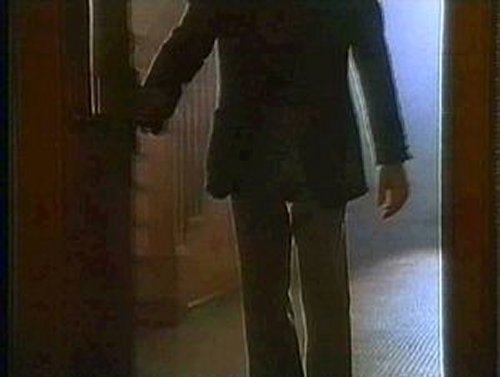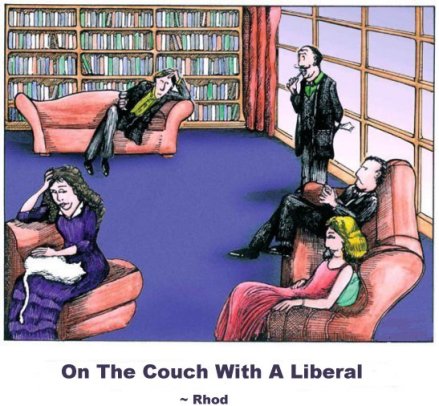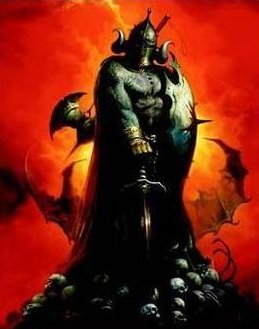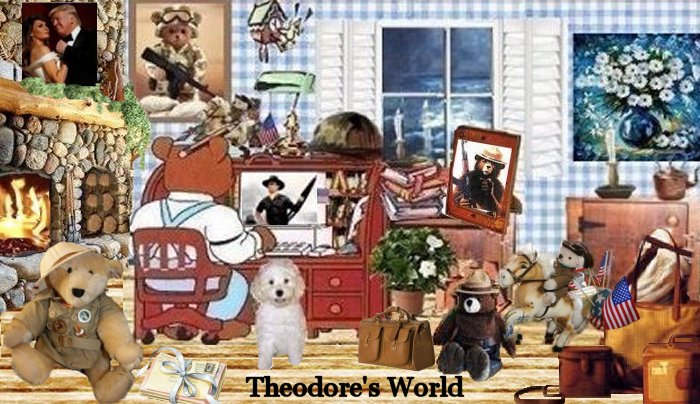February 18, 2008
The Lesson of The Battle of the Greasy Grass ~ Penned by Rhod

No visitor to the museum at the Military Academy at West Point can come away with the impression that America is a militaristic country. The museum's displays are very restrained, with none of the war triumphalism one might expect in a such a place. There's very little representational art in the heroic style, with wild-eye horses carrying plumed, saber-swinging officers, or men with bayonets contending for a position. But there's a vast and exceptional collection of historical hardware and gear, some gathered at places of defeat. Visitor opinion isn't leveraged here; you take your own thoughts and conclusions home with you.
There's a row of cases for artifacts from the Indian Wars, and a collection from the Black Hills Wars of the late 19th-century. Sitting Bull's lever action, brass and steel rifle is here, along with ceremonial and regular dress, tools and weapons and other curiosities assembled from the tribes. You'll see something striking here, and shocking in its own way; not scalps, but arrows. Fletched and painted arrows gathered after The Battle of the Greasy Grass, known to white schools kids of my age as The Battle of The Little Big Horn.
These arrows were bowed on horseback, and launched in one or more of the three engagements that composed the fighting at The Little Big Horn River in June of 1876, the main reason we remember George Armstrong Custer at all. These perishable, fragile missiles are links to the ingenuity, heroism, determination and desperation of that summer day, when they were used against skirmish lines of terrified horse soldiers, led to their deaths on a vain mission to subdue Lakota, Northern Cheyenne and Arapaho who had abandoned reservation life, and were willing to fight rather than be returned to it.
The details of the full mission to return the recalcitrant tribes is complicated; of less interest than the morbid appeal of Custer's Last Stand, which was a small but lurid part of it. The short story is that Custer attacked an encampment of more than 1200 Lakota Cheyenne and Arapaho warriors and their families, with his 198 men, 6 officers and 3 civilians (a newspaper reporter and two scouts).
Among this group were Custer's brother and brother-in-law.
Custer had already ordered two other units to different locations around the Lakota encampment, with a total force of 277 men, officers and Sioux, Ree/Arikara and Crow scouts. Recent research has shown that throughout the ensuing battles, the 7th Cavalry was at a five-to-one disadvantage. Custer's unit was annihilated, along with his relatives, to the last valiant man. Only two horses are recorded to have survived without wounds on the high ground of Custer's defensive position. It's believed that Crazy Horse personally led the last charge on Custer's unit. The other horse-soldier units were severely bloodied.
Custer's mistake was fatal; the amateur's mistake of underestimating his enemy. He'd refused a Gatling Gun and two additional companies of cavalry two days before the battle, claiming he could handle anything he found. He lacked reliable reconnaissance, and the intelligence that the Cheyenne had Winchester and Spenser repeating rifles. He was also enlarged by his romantic arrogance and scorn for his enemy. The last living day he threw his leg over a saddle, he was confident of victory in spite of the things that he knew, and was rendered fatally vulnerable by the things that he didn't. In this way, he resembled a Congressional Democrat.
Our American model at this moment can never be George Armstrong Custer. We must honor his soldiers, who stood toe-to-toe with their enemies, but our tactical models must be Crazy Horse, He Dog, One Who Walks With Stars, Rain-in-the-Face and Two Moons - all known to have been at Little Big Horn - the good men and true of the Lakota Cheyenne and Arapaho, willing to defend their civilization, culture and families to the death.
They reacted with the total force necessary to abolish the danger to them. Today we know the destiny of these benighted tribes of the 1870's. However inevitable it came to be, and even considering the retrograde and brutal role they played in their own destruction, they made arrows and used them to defend their freedom. I know, because I saw these very arrows. We post-war boys of the 1950's must have sensed this, because none of us ever wanted to play Custer in our games of Cowboys and Indians.

Posted by Rhod at 01:50 AM | Comments (10)
February 11, 2008
Taking Sides ~ Penned by Rhod

Taking Sides
Whatever America will have accomplished by its mission in Iraq, one thing is already clear here at home. Between the Vietnam and Iraq wars, a large and simplistic body of “ pacifist” opinion had gathered in America, and the Iraq war turned it loose. You might ask where it was during the Bosnian campaign, which brought us closer to large-scale warfare than at any other time since Vietnam. Simple. That mission was prosecuted by a liberal Democrat, which means that any misadventure will be judged by liberals in The Court of No Opinion.
But more to the point, with Clinton, the Democrats had no backbone, for a battle among themselves with the radical anti-war forces flourishing within the party. They also had the purifying idealism of fighting oppression and genocide to alibi the killing in Bosnia. This same fluctuating idealism was lavished briefly on the Afghans, but almost entirely withheld from Iraqis. If it doesn’t make sense to you, you’re insane.
When Bush decided to react to the continuous, low-grade war waged upon us for thirty years by Islamists, he spend a befuddled year seeking permission to fight back. This allowed time for the Western anti-war armies to assemble and plan their opposition to it.. When our troops finally left the gate, we found that we were at war with at least two enemies – Islamists here and abroad – and the non-violent legions of The West, to whom war is unthinkable, especially if waged by Republicans on behalf of Western civilization.
Men of my age and background faced these folks in the 1960’s. I knew people then who called themselves “ pacifists”, people who were smugly non-violent because they never had to fight for anything. They didn’t know how to fight. They attributed their comfort and good luck to good character and superior ideas, and this fallacy turned upon their conceit that violence is east and non-violence is difficult. The opposite is actually true. Fighting might be sometimes exciting, but it’s never easy. Only the idealist young, the foolish or the deranged go looking for it, while the prudent and old are simply prepared.
But the people I’m talking about weren’t actually pacifists, they were passive. I’d trust a principled pacifist more then someone who is vaguely anti-war and blithely non-violent. Pacifism as a way of life is deeply complicated, and it’s a respectable approach to personal revelation and conduct. It’s not easy to be a principled pacifist. It’s dangerous too (you can be a medic or Corpsmant in the military, or you can practice warfare of the non-violent kind- Satyagraha, or firmness in the truth, generally thought of as passive resistance. This was Ghandi’s kind of warfare against British rule. It expressed another absolutely essential element of doctrinaire pacifism – a coherent philosophy of good and evil. Ghandi knew that, in all human disputes, it matters which side wins. He fought with non –violent weapons at his philosophical disposal, but he fought, nevertheless. He didn’t refuse, he didn’t equivocate, he didn’t temporize. He fought and he knew right from wrong.
In contrast, the pacifism of 1960’s liberalism, which survives today, usually includes the perfidious rule that America is a preternatural aggressor, and always includes the irrational belief that the problem of war can be resolved by high-minded declarations of righteousness. UN Resolutions. Violence never solved anything. What if they gave a war and nobody came? Stop the war. And that peal in this bed of stones, both sides are at fault.
The claim that both sides are at fault upholds the fantasy that Reason would prevent the organized violence of war; that only the mad or disordered can consider war as a solution to anything. But in the world of solid objects, there is a lot of madness, evil and brutality. It’s simply true that with most wars of the past 300 years, someone with mad, warlike intentions showed up, and the injured parties had to do something about it.
No non-violent philosophy can sustain a society for long when it refuses to acknowledge that war, if not always necessary, will always have an outcome that matters; that the victory of one or the other will make a moral difference. It is always necessary to take sides, because no opposing claims are equally just, not in any human place except in the strange land of relationship counselors.
Those who wallow in the selfish contentment of an unearned peace; who condemn the willing warrior at his task, or who have never been down in the muck or war, or risen with outrage at the wickedness of an enemy, have much to learn about war and themselves. Passivity of this kind is a virtue untested. And even worse, as LBJ learned, capriciousness and restraint in Vietnam encouraged the Russians, not because we refused to fight, but that we fought with reluctance and moral confusion. The outcome mattered, but we acted as if it didn’t. Our enemies will always notice both failings and act accordingly. They know that it matters which side wins.

Posted by Rhod at 12:55 AM | Comments (12)
June 29, 2007
Them Against Us ~ Penned by Rhod

Almost fifty years ago, in November of 1959, "Alfred Hitchcock Presents" aired an episode entitled "Special Delivery". It was adapted from Ray Bradbury's story "Come Into My Cellar", which also appeared in periodicals under the title "Boys! Raise Giant Mushrooms in Your Cellar!". I was fourteen when I saw it. It scared the hell out of me.
In this tale, eleven-year old Tommy Fortnum receives a package of mushroom seeds in the mail from an undisclosed source. He's responded to an advert in a boy's publication for the seeds. To the bemusement of his parents, Tommy then raises a particularly delicious variety of mushroom in his home cellar. He's protective of his crop and very secretive. At the same time, Tommy's father, Hugh, notices subtle changes in his neighbors. They're different from their usual selves in important ways. They're belligerent, detached and hostile.
Hugh knows something is wrong and so does the viewer. There's a connection between the mushrooms and the altered states of the neighbors, but Hugh figures it out much too late. Tommy is distributing the mushrooms. Whoever eats them vanishes, and their bodies become animated shells inhabited by aliens. Hugh tries to warn his neighbors, but they scoff at him. They're content with the temptations and comforts of a summer's day while being slowly, peacefully replaced.
The screenplay doesn't tell us how this story ends. In the last scene, Tommy is shown with a mushroom to his lips, in a darkened cellar, calling to his father, who peers into the darkness from the top of the cellar stairs. Hugh's final horror and indignity is to be betrayed by his own son. Betrayal is a central theme in this story. It isn't chiefly, or even mainly, about aliens and conquest. It's themes are lying, betrayal, weakness, comfortable indifference and the delusion that, if things look the same, they are the same.
It's also a yarn about the feebleness of our defenses when everything seems stable and permanent, and how easily power and dominance can be exchanged by weakness, by simply doing nothing. Doing nothing, and being seen doing nothing, in a competitive universe, is an invitation to be superseded or colonized by other powers and ideas. Competition goes on all the time; there is no peace, only stasis, and competition for power often has no other motive than perceived weakness in the passive party.
Conservatives are familiar with these themes. We sense a fraud and a threat early in the game. It's this acute awareness of dishonesty and ubiquitous danger that modern liberals view as the conservative paranoid personality, as the alienated right-winger. This idea stems entirely from the reality that liberalism today is establishment and conformist, risk-averse, and sickeningly repetitive with its tired, shabby and devitalizing theories. We're diligent, skeptical, anti-ideological and strength matters to us. Not the strength to dominate others, but the strength to avoid being dominated by others. We wouldn't have eaten the mushrooms, but I'm getting ahead of myself here.
As far as we know, the invading entities in "Special Delivery" never resort to violence or force. Their current circumstances might have weakened them in some way, so they seek habitation elsewhere. We never see their real form. They simply exploit a weaker state of mind in humans, and avail themselves of an opportunity on earth. We know nothing about their ideas, but we know that they will win. And this is where my little screed intersects with politics and government, and the Bush/Kennedy Immigration Bill, which as of Thursday, June 27th, appears to be dead. It's a continent-sized cave of mushrooms, my friend, and they expected us all to partake. They still do, and the meal will be back in some other form.
We might as why we elect and pay people like Bush and Kennedy, Lindsey Graham and Trent Lott to be stupid and offensive when we get enough of it for free every day. Well, we don't elect them for those qualities, but that's what we get. Compensatory arrogance and megalomania grow in sanctimonious buffoons like Graham and Lott and Reid and Pelosi when we place them in public office, because they can't abide the real existential weakness that elected office beholds. We can dump them back into the common swarm of humanity from whence they came, and this simply cannot stand. They seek office for power, permanence and self-projection, and they need to solidify the fantasy of their immovability by staking their terrain in noticeable ways, like tomcats and coyotes.
If they would just express their bone-deep mediocrity by bloviating and squandering money, we might leave them alone. Give them a trillion dollars and two-thousand microphones, put them behind the chain link fence and walk away. But some times, like now, they sail off through a fogbank into some mental Sargasso Sea. They end up mired and becalmed, yammering to each other from their rotting deck chairs about some Big Idea, like The Great Society or immigration bills, and cursing the rest of us for declaiming their navigation skills and attentions spans.
Their last Big Idea, The Great Society, planted a fetid jungle of despair for millions, and the immigration bill is just as bad in the same grandiose ways. It won't work, for starters. It's too complicated and its assumptions too spurious for it work. It's a replacement for other un-enforced immigration bills, and contains new laws to replace identical but currently ignored old laws, and it has the potential for real mischief. It's the product of the end state of a political class past its prime; those who compose it are shockingly unaware of how ridiculous they seem to the rest of us. And even though the bill might be dead, they're plotting revenge strategies as I write.
Forget, for a minute, the multiple idiocies of the bill itself. It has an ethical flaw, too. It's packed with economic charity of the kind that fills the empty hearts of power-hungry politicians with instant virtue. Bush and others are possessed of a bizarre kind of charity, they need to give away things they do not own. Things like American sovereignty, like rational citizenship standards, like social benefits and sensible wage standards, and even more important, the legitimacy and validity of a government matured over 250 years, held together by dried blood and torn web gear, and legitimized by the "consent of the governed".
The President and others don't see America in this way. Their America is an economy without an ethos, a friction-free collection of buyers and sellers who can be manipulated and tuned by immigrant labor supplies, productivity and business interests. When necessary, this cynical vision of America can be ornamented with crap about "family values" not stopping at the border, but the simplified mercenary vision is really all there is. It wouldn't pass the approval of a hung-over, semi-comatose college freshman in his first Political Science course, but it's enough for George W. Bush, most of our elected side-show performers, and the fearful big business class of America.
Whatever happens with this great mess we call illegal immigration, it's likely that something shattering and revolutionary has happened in American politics. For the first time in seventy-five years, not since Herbert Hoover and Smoot-Hawley, has American government seemed so counterfeit, so weak and remote from the interests of lawful immigrant and native-born citizens, and so bent upon forcing its vision of American on Americans who don't buy it.
It's a time of great danger. When there's mass awareness of the political class as truly sinister in its assertion of itself against the people, a struggle will ensue, and there's no guarantee of victory for us in the long term. We can never forget that "freedom" is a dull and lifeless word until we attach a preposition to it. Freedom from. Freedom to. Freedom for. Freedom against. Freedom with. Action. We need to do something with our freedom, and not just declare ourselves as free. We didn't eat their mushrooms today, but the political hacks responsible for the meal are still there, perched like gargoyles on our backs. Maybe it's time for a Conservative Party.

Posted by Rhod at 03:55 AM | Comments (14)
November 07, 2006
On The Couch With A Liberal ~ by Rhod

A few weeks ago I had an argument with a liberal at another blog. It started as a routine exchange of ideas and facts about the Iraq War. He claimed that Bush lied about WMD’s that the war is a disaster; it’s caused a bloom in terrorism across the globe that wouldn’t have existed otherwise, and it’s also responsible for problems between Muslims and native Europeans, especially in The Netherlands and France. No surprises here, except that he also claimed that the “overwhelming majority” of “peace-loving Muslims” across the globe were disgusted by the events of 911 and were “ on our side” until we invaded Iraq. This, I didn’t know for sure, and neither did he.
He unpacked all these ideas from his liberal sales kit, the one with the pocket of praise for the UN and the dud Hans Blix. He spoke of the UN as the ancients once spoke of The God’s, and Blix, was at the summit of Turtle Bay’s Mount Olympus. It was easy to sweep all this inferior junk off the table, but while doing it, I referred to some of his ideas as “fatuous” and “idiotic”. And while I never described him as a “fatuous idiot”, these perfectly good words changed the nature of our discussion entirely. Where he was simply lofty and dismissive of me before, now he was angry.
The smoke of his indignation was thick in the air, and he hid behind it. He built a new redoubt around his ego, his reputation, and his status, and pretty much abandoned any defense of his points of view of the war. He’d concluded that my nastiness cancelled the validity of my arguments anyway, and at the same time verified the truth of his ideas. Because I proved myself crude and vulgar, nothing I said could be true. We were now locked in a psychodrama: then he pulled himself together and insisted that, whatever else might be true or false, and no matter how nasty I was, the Iraq War still “created terrorists”, and he had the sobering authority of the NIE Report to prove it.
Now this was interesting, and from his point of view, it made perfect sense. A ‘new” terrorist has much in common with an offended liberal because both of them are pissed off and resentful of people they don’t like in the first place. My opponent was, more or less, speaking about himself as well as terrorists, and then I knew that I had made the amateur’s mistake once again. I underestimated my opponent, by failing to allow for the importance of psychological factors to liberals in their worldview. But what do you say to a guy like this?
Well, the short answer to the assertion about expanding terrorism is this: When you go to war with people of a certain kind, they fight back. Even the ones just hanging around the falafel parlor. They enlist like-minded people, and an organization of enemies is the result. Because they coalesce and act doesn’t mean they didn’t exist before in some subtle, disorganized way. They’re just more visible when hostilities commence. But The Left’s assumption is that, prior to the invasion of Iraq, the future terrorist was involved in peaceful domesticity, sloshing a case of beer and watching re-runs of “Full House”. The deposition of Saddam Hussein then plunged him into fits of decapitation, mosque-attendance, beard-growing and self-destruction.
This is a variation on the claim that 1960’s radicals discarded their tennis whites, skateboards and Boy’s Life mags for frantic dancing, drug –use and bomb-making because of the draft, the Vietnam War, social injustice and capitalism. Even if these weird maniac constructions makes some sense, the problem with liberals is not their fixating concern for psychological factors, it’s the therapeutic mindset that follows it.
The therapeutic mindset is really an excuse-generating machine. It dismisses moral value and free will. My opponent, without actually saying it, was claiming that today’s Islamic killer was yesterday’s friend, and only fate and American malevolence are to blame for his wickedness. This is finely tuned idiocy, and yes, it’s also fatuous, but I didn’t give him the chance to hear me say it again. But now his was angrier at me for a few gruff expressions than at the terrorist who snaps on a suicide belt. What was the point?
Since I was back at the beginning. I didn’t say much except “let’s agree to disagree” and we parted company. Why? Because a portal had been opened to an examination of social pathologies, poverty, lack of education in the Middle East, and all the other mordant alibis that liberals deploy to avoid evaluating real events and real people. The advantage in this arena is always to the liberal. Any statement about the psyche of our enemies, pre or post-war, can’t be verified or disproved, just discredited by common sense, and common sense isn’t enough for a liberal. There’s no chance of victory or truth when you’re on the couch with a liberal and staring into the maw of endless theorizing about motives and moral neutrality. Terrorism, in such a world, is no more odious then a violent protest about a penurious minimum wage.
What this proves to me, over and over, is that classical liberalism is dead. It’s been undone by its frail and senile self, by relativism and its evil spawn, multi-culturalism, by Marx and Freud and the need to sanitize all conduct of relative value. Liberalism was born into a world of oppressions of all kinds, and having successfully liberated most Westerners from all restraint over two hundred years, it’s inertial force now must liberate people from the consequences of freedom itself, which can be summarized as good or bad behavior, and personal responsibility or irresponsibility. And this is something radical Islam understands about us. Their best friends are already inside the gates, and the heads they remove will sometimes be smiling back at them.
Posted by Rhod at 02:47 AM | Comments (8)
July 26, 2006
"Two Men Go In, One Man Comes Out"

Let's recall that the British mandate for partition in '48 sprang from the League of Nations in 1923. The area at that time was populated by indigenous Jews, who were purhasing land from Arabs across the region. Willingly sold, too.
"Palestine" then consisted of Gaza, the place now called Israel, The West Bank and Jordan. The Balfour Declaration contemplated all of it for Israel, but Trans Jordan was taken away.
In short, the Jews accepted, the Arabs didn't, and they went to war with Israel in '48, '56, '67 and '73, and continually in various ways since then. I haven't researched this, but it's claimed that Israel represents less than 1/500th of Arab territory, a matchbook on an area of 9,400 square feet.
I find it interesting that the Arab view of the necessary cosmic purity of Muslim land is moored to the most barbaric, backward, exploitative and vicious regimes on the planet. The Islamist view of The Law, and its realization in death and martyrdom, is the reverse of the progressive, search for the undisclosed in the Judaeo-Christian world.
In that way, we have found our perfect enemy, the perfect antithesis to The West, which even in its secularism, is convinced of the essential value and possibilities of life as the condition for revelation rather than death.
In my view, this war will be "two men go in, one man come out". We will tremble at the awfulness of it but we will not be defeated. In their gross ignorance and fury, they are pushing us into a corner. Israel will suffer a great deal, I'm afraid, but she'll live and her enemies will die.
Posted by Rhod at 11:55 AM | Comments (8)
April 30, 2006
A Few Points From A Former Bush Supporter
First on the list, effing tired of being taken for granted. Forget your friends and you deserve your enemies.
Second, if there is any similarity between Vietnam and Iraq, it's that the administration waging the war no longer knows what the fuck it's doing or how to define the effort. Apparently Iraqi democracy is more important than the American version.
Squandering political capital through indifference to your base and to the persuadable opposition disqualifies you from public office.
All of the shortcomings above come together in the pandering to the criminal class we call illegal immigrants.
Makes friends with them.
Have no realistic plan for preventing a further degradation of the problem.
Behave like the French Court in doing it.
As the world slips closer and closer to firestorm ignited by Iran, these idiots can't even find the backbone to protect our own borders.
All I know now is that the future looks very grim. We have no government worthy of the term, we have enemies everywhere and rats gnawing at the fabric of American society. What's even worse than the practical matters is that the shear weight of pride in country and citizenship can be a force magnifier. Even that, now, is in doubt.
The Bush Administration isn't even up to level of Jacque Chirac's. Whatever else you say about Chirac, at least he still makes a big deal about being a Frenchman. For that matter, maybe the same can be said of George Bush.
Posted by Rhod at 05:35 PM | Comments (8)
